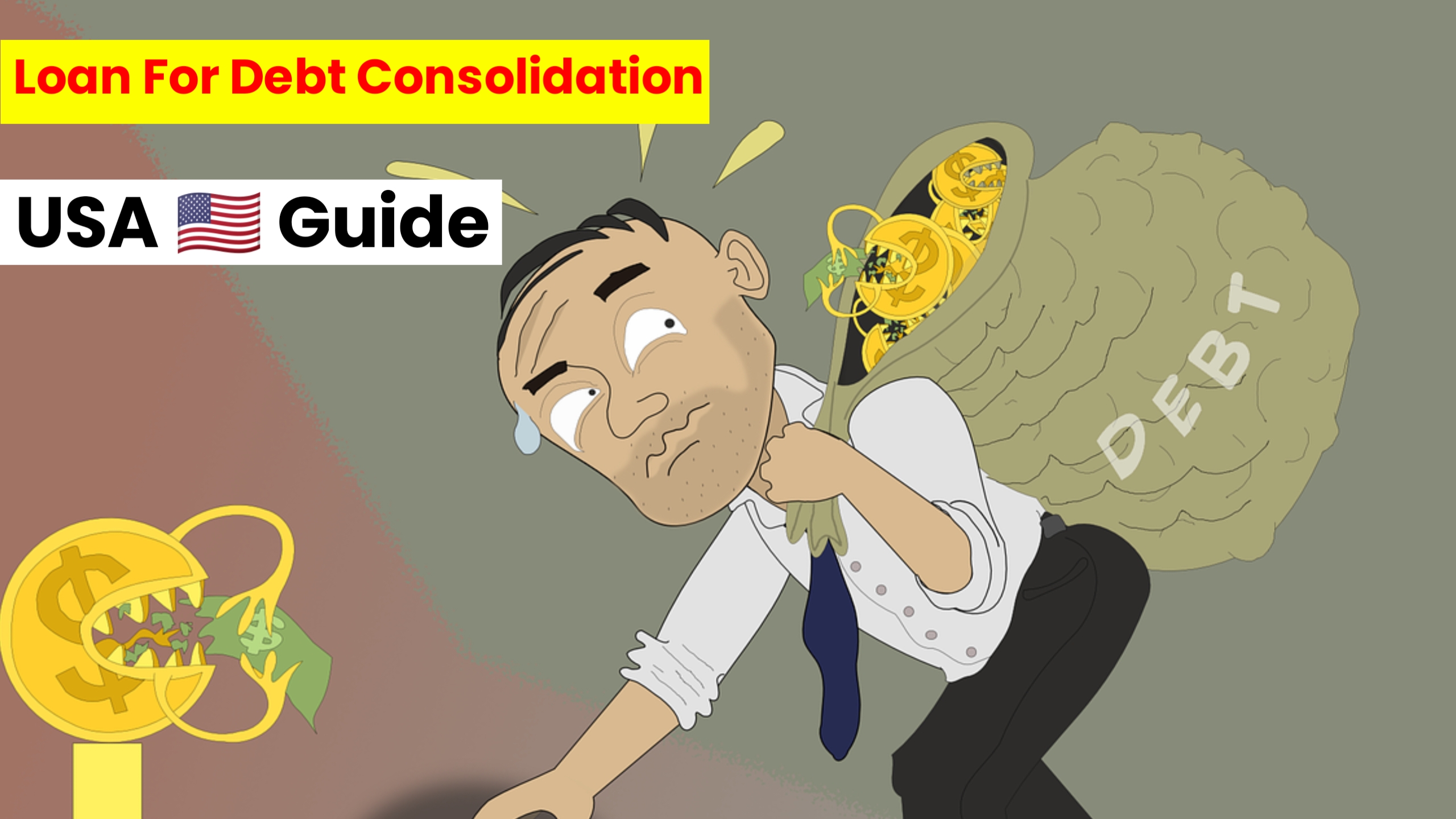Imagine this: you’re juggling five different credit card bills every month. Each card has a different due date, a different interest rate, and the stress keeps piling up. You’re paying more in interest than you’re chipping away from your actual balance. Sounds familiar? Many Americans are in the same boat.
This is where the idea of using a personal loan for debt consolidation becomes tempting. Instead of chasing multiple payments, you replace them with just one fixed monthly payment. On paper, it feels like the perfect escape plan. But is it really that simple? Or are there hidden pitfalls you need to know before signing on the dotted line?
In this guide, we’ll walk through the pros and cons of consolidating debt with a personal loan, show you how to crunch the numbers using a personal loan debt consolidation calculator, and help you decide if this move makes sense for your financial health.
How Debt Consolidation Personal Loans Work
Debt consolidation loans basically take all your high-interest debts—like credit cards, medical bills, or small loans—and combine them into one single personal loan.
Here’s how it works in practice:
-
You apply for a personal loan, usually unsecured (no collateral).
-
If approved, you use that money to pay off your existing debts.
-
Instead of several payments with varying rates, you now make just one monthly payment at a (hopefully) lower interest rate.
Most personal loans in the USA come with fixed interest rates and repayment terms ranging from 2–7 years. The simplicity is what attracts people: one payment, one interest rate, and a clear payoff schedule.
Pros of Debt Consolidation with a Personal Loan
1. Lower Interest Rates
Credit cards in the U.S. often carry APRs around 20% or higher. In comparison, personal loans average ~12.6% APR, which can mean significant savings if you qualify for a lower rate.
2. Fixed Monthly Payment Schedule
Budgeting gets easier when you know exactly what to pay each month. Unlike credit cards, personal loans don’t fluctuate with spending habits—your payment is predictable.
3. Credit Score Boost
Paying off credit card balances lowers your credit utilization ratio, a key factor in your credit score. Plus, diversifying your credit mix with a personal loan can be another positive.
4. Simplified Payments
One loan, one due date. No more tracking five different bills. This alone reduces stress and the chance of missing payments.
5. Peace of Mind
Debt feels less overwhelming when it’s structured. Many borrowers report feeling more in control and motivated once their debts are consolidated.
Cons of Debt Consolidation with a Personal Loan
1. Upfront & Hidden Fees
Personal loans sometimes come with origination fees (1–8%), processing charges, or even prepayment penalties. That can eat into the savings.
2. Risk of Paying More Interest Over Time
If you stretch your loan over 6–7 years, even at a lower rate, you might end up paying more in total interest compared to aggressively paying off credit cards.
3. Not Always Cheaper
If your credit score isn’t strong, lenders may give you a rate as high as—or higher than—your existing credit cards.
4. Doesn’t Fix Spending Habits
Debt consolidation clears old debt but doesn’t stop you from creating new debt. Without lifestyle changes, you might end up worse off.
5. Credit Score Dip (Short-Term)
Applying for a personal loan triggers a hard inquiry, which can lower your score slightly in the beginning.
Debt Consolidation Calculation Table
Here’s an example to show how consolidation can impact your monthly budget:
| Debt Source | Current Balance | Current APR | Monthly Payment |
|---|---|---|---|
| Credit Card 1 | $5,000 | 20% | $150 |
| Credit Card 2 | $3,000 | 18% | $90 |
| Personal Loan | $2,000 | 15% | $70 |
| Total (Before) | $10,000 | — | $310/mo |
| Consolidation Loan | $10,000 | 12% | $210/mo |
| Monthly Savings | — | — | $100 |
With a personal loan debt consolidation calculator, you can adjust balances, rates, and loan terms to see how much you’ll actually save in interest and time.
Who Benefits the Most?
-
People with multiple high-interest credit cards.
-
Borrowers with good to excellent credit scores (to secure lower rates).
-
Individuals who are serious about not adding new debt after consolidation.
Alternatives to Consider
-
Balance Transfer Credit Cards – Some offer 0% APR for 12–18 months, but usually charge a balance transfer fee.
-
Credit Counseling & Debt Management Plans – Nonprofits help negotiate lower interest rates and structured repayment.
-
Home Equity Loans/Lines – Lower rates, but your home is on the line as collateral.
-
Debt Snowball or Avalanche Methods – Pay off debts yourself using disciplined repayment strategies.
Conclusion
A personal loan for debt consolidation can be a lifesaver—if you qualify for a good rate and stay disciplined. It simplifies your payments, can save you money, and gives you peace of mind.
But it’s not a magic fix. Always compare offers, calculate your real costs, and think about your long-term financial habits. After all, debt freedom isn’t just about lowering interest—it’s about changing behaviors that caused the debt in the first place.
Disclaimer
This article is for educational and informational purposes only. It does not provide financial, legal, or professional advice. Always consult with a licensed financial advisor before making debt or loan-related decisions.


As a Newbie, I am always exploring online for articles that can benefit me. Thank you